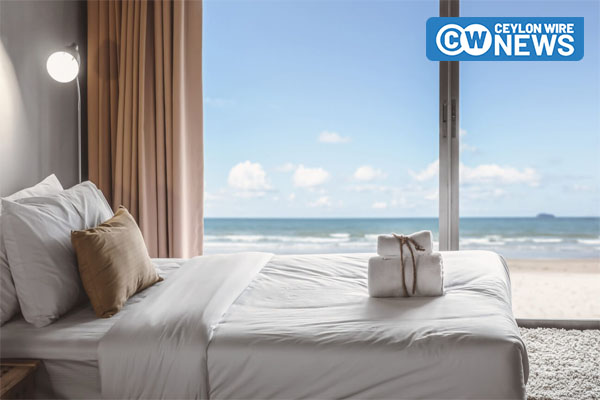The Advocata Institute expressed concern over the recent proposal by the authorities to impose a minimum room rate on hotels in the city of Colombo.
This proposal, set to take effect from 1 October 2023, stipulates rates of $ 130 for 5-star hotels, $ 100 for 4-star hotels, and $ 80 for 3-star hotels. While the authorities argue that this measure aims to counter underpricing by higher-tier hotels, Advocata warned the policy threatens to undermine the growth and vitality of the tourism sector.
“It places an unnecessary burden on hoteliers already grappling with the challenges posed by the global pandemic and subsequent economic crisis. Further, it undermines the country’s competitiveness in the region tourism al tourism market,” it added.
The Advocata Institute strongly urges authorities to reconsider this ill-advised proposal, noting that this policy undermines competition and oversteps seriously the role of the Government in a competitive market economy, the stated policy framework of the Government.
“Pricing acts as a reflection of the quality of services offered by hotels and serves as a differentiating factor. If prices fail to accurately represent the services provided, customer dissatisfaction can ensue, especially when compared to more competitively priced options in neighbouring countries such as Thailand and Vietnam,” it added.
This is supported by a comment made by the Sri Lanka Association of Inbound Tour Operators (SLAITO) which states that “before implementing such prescribed rates, it is crucial to generate demand and interest in Sri Lanka. Adopting these rates will render Sri Lanka uncompetitive and result in a loss of clients, even when compared to hotels in New Delhi, with which they are currently competitive”.
Sri Lanka previously attempted to implement price controls between 2009 and 2019, following lobbying by a segment of hoteliers aiming to compete more effectively against 5-star-rated hotels. However, this policy failed due to numerous violations resulting from inadequate monitoring and enforcement by the authorities. Many hotels, including those that initially advocated for the Government’s proposed room rates, have not complied with the established rates, as alleged by the former Tourism Minister John Amaratunga.
Advocata opines the imposition of minimum room rates restricts hotel owners’ flexibility in setting prices by market demand and effectively stifles healthy competition among various establishments. The tourism industry experiences fluctuations in demand that correspond to seasonal and weekly trends. Such demand patterns necessitate the ability of hotels to tailor their pricing strategies to capitalise on peaks and optimise profitability.
“Every hotel has its unique room pricing considerations depending on factors such as location, size of the hotel, market demographics, level of competition, and type of service offered to name a few. The uniform imposition of minimum rates disregards the diverse range of hotels and accommodations available in Sri Lanka, catering to various budgets and preferences. This one-size-fits-all approach disregards the crucial factor of consumer choice. Imposing minimum room rates on a certain type of accommodation whilst disregarding alternate forms of accommodation available within the city of Colombo such as guest houses and Airbnbs, undermines the effectiveness of this policy,” it explained.









